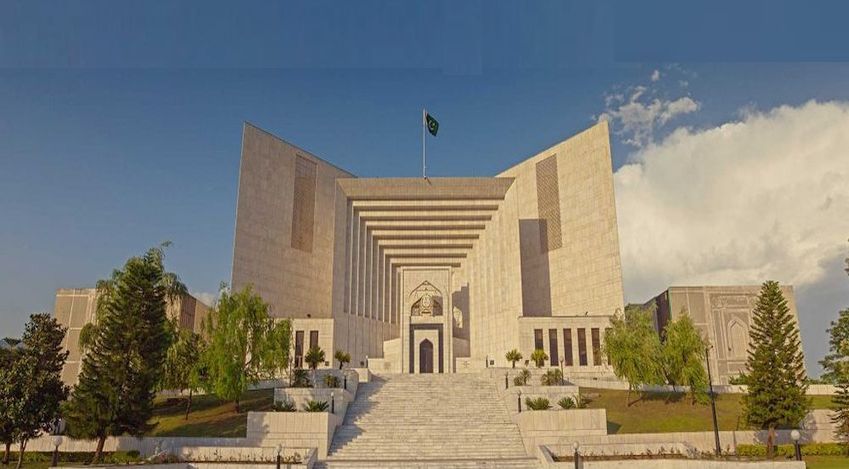The Appellate Courts cannot re-evaluate evidence in Regular Second Appeals unless lower Courts have clearly erred --- Supreme Court of Pakistan
Islamabad 31-10-2024: The Supreme Court of Pakistan dismissed petitions in a longstanding property dispute, upholding concurrent findings from the Lahore High Court and lower Courts. The case involved complex issues around property rights, mental health, and allegations of fraud among family members.
In [Civil Petition Nos. 3210-L of 2023 and 5181 of 2023], petitioners challenged the Lahore High Court’s decision affirming the rights of Mst. Yasmin Begum’s legal heirs to inherited property. The case was originally filed by Yasmin’s son, Syed Raza Haider, who claimed his mother was mentally incapacitated and therefore unable to manage her assets. Yasmin’s siblings allegedly transferred her share of valuable properties spanning agricultural land in District Sahiwal and a residence in Lahore through fraudulent means, facilitated by a disputed power of attorney.
The Supreme Court of Pakistan, presided over by Mr. Justice Athar Minallah, Mr. Justice Musarrat Hilali, and Mr. Justice Irfan Saadat Khan, reviewed the lower Court’s rulings that found in favor of Yasmin’s heirs. The Courts had previously ruled that Yasmin was deprived of her property rights due to her mental health condition, which had been established through evidence.
The Court’s decision underscored several legal principles:
- The Supreme Court of Pakistan upheld the concurrent findings of the lower Courts, citing Section 100 of the Civil Procedure Code, 1908, which limits the scope for appellate review unless there is significant misinterpretation or oversight of evidence.
- The Court reaffirmed that transactions made by mentally incapacitated individuals are voidable if there is evidence of fraudulent intent by other parties involved.
- The ruling highlighted that purchasers claiming to be bona fide must demonstrate they acted in good faith, conducted reasonable due diligence, and paid fair consideration. This principle, cited under Section 27(b) of the Specific Relief Act, 1877, was reinforced through references to Hafiz Tassaduq Hussain Vs. Lal Khatoon (PLD 2011 SC 296) and Gulzar Ahmed Vs. Ammad Aslam (2022 SCMR 1433).
- The Court reiterated that appellate Courts cannot re-evaluate evidence in regular second appeals unless lower Courts have clearly erred. This principle was supported by case precedents such as Amjad Sharif Qazi Vs. Salim Ullah Faridi (PLD 2006 SC 777).
- The Supreme Court of Pakistan concluded there were no substantial legal questions raised to justify further review under Article 185(3) of the Constitution, which sets a high threshold for appeals to the Supreme Court of Pakistan.
The Supreme Court of Pakistan order, issued on April 22, 2024, declined the petitioners’ request for leave to appeal, effectively closing the case. This ruling serves as a precedent for cases involving inherited property rights, mental health, and the responsibilities of bona fide purchasers in Pakistan.
Powered by Froala Editor








